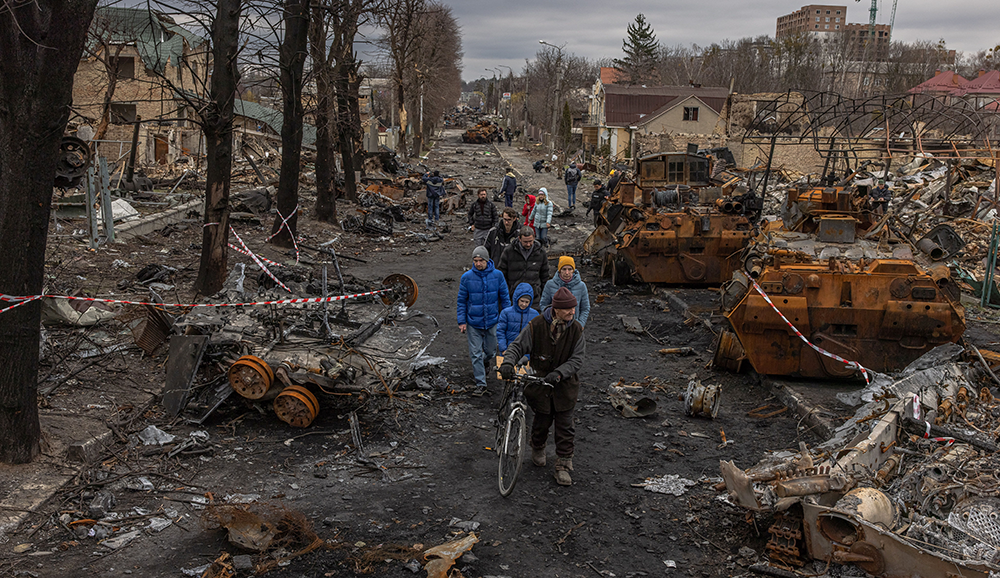
Armed against crimes for which there is no statute of limitations
The International Criminal Court and other authorities could in the future bring proceedings for war crimes committed in Ukraine. In the meantime, it is important to collect evidence and testimonies relating to these crimes, for which there is no statute of limitations.
On 24 February 2022 Europe woke up to the dramatic news that Russian troops had invaded Ukraine early that morning. Bombs were raining down. The world was stunned and horrified by the atrocities broadcast in the media. Quickly, the first indications of potential war crimes - as in Bucha - arrived in Switzerland.
What could the rest of Europe do? In several countries, the authorities were getting organised. Thanks to Europol, the process of collecting testimonies from victims or witnesses of war crimes and other violations of international criminal law was made more efficient and accessible. The goal was clear: the guilty must pay for their actions. The collection and preservation of testimonies and evidence will allow a quick and targeted response to subsequent criminal proceedings or requests for mutual legal assistance. Europol collects, filters and analyses this evidence. Collecting and preserving evidence today is a step towards justice for the victims of these atrocities and for their relatives. It is also hangs a sword of Damocles over the heads of the perpetrators of war crimes.
Switzerland reacted quickly. By mid-March, fedpol, the State Secretariat for Migration (SEM) and the Office of the Attorney General of Switzerland (OAG) had coordinated their processes. How and in what form could such painful and vivid memories be collected? Efforts were made to obtain photographs, videos or even sound recordings, which are precious evidence.
A portal of evidence
In less than ten days, an expert team including investigators, analysts, translators, computer specialists, lawyers, prosecutors, and specialists in asylum policy had created a web portal for reports from victims of war crimes. Direct contacts were then organised with the people who submitted reports to the portal. Nataliya* was one such person. Soon after signing on to the portal, she was contacted by specialist investigators from the Federal Criminal Police. An appointment was made for an interview. Nataliya was questioned with the necessary caution, and the resulting information was documented and prepared for possible future criminal proceedings.
fedpol investigators also follow up on other leads, including those from open sources and contact potential witnesses. In 2022, 11 police investigations were carried out.
Witnesses or victims of war crimes sometimes travel to several countries before finding refuge, and only transit through Switzerland. In the autumn of 2022, fedpol contacted Dimitri*. A first interview took place, but Dimitri left a few days later for England to join his family. His testimony was not lost, since the investigators put him in touch with the English police. He was able to give a full testimony there. This was possible thanks to international police cooperation and collaboration.
What is fedpol’s response to the war in Ukraine?
Thanks to the interviews conducted in 2022, several pieces of information were passed on to Europol. The collection of evidence is not the only initiative undertaken by fedpol. A Ukraine Task Force has been set up with a group of experts from different fields who understand and anticipate problems related to police work. In order to guarantee Switzerland’s security, fedpol coordinates the exchange of police information with the competent authorities in the context of the Embargo Act, the Weapons Act and the Aviation Act.
Regular exchanges are organised with other partners including SEM, the Federal Office of Customs and Border Security, the Federal Intelligence Service, and the Police Command Staff of the Conference of Cantonal Police Commanders of Switzerland. A proactive exchange of information is key to overcoming the challenges of a crisis situation.
* Names have been changed